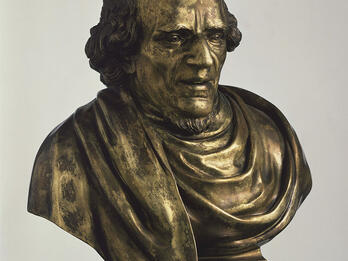Dissertation on Medical Policy Concerning Certain Foods Which Are Prohibited in the Pentateuch
All nations have been subject, in their authors, as in all other things, to significant important changes. Inclinations, needs, and the relations of their subjects change, as do the passions of the great. On account of this, even the pens of those who write must also change. In general, these serve to foment pride, to praise or combat the virtues or the vices of the people. Only the Jewish nation has always conserved the sole pleasure of writing, in the infinite number of its authors, from Maimonides to our day. Its only object, not to say the principal one, has been to illustrate the sacred scriptures, the Talmud and their commentators. But their observations were made from another point of view than that of philosophy based on reason. The captivity of this nation, its dedication to commerce, the uncertainty of its products, the scarce cultivation of true science, and a strange blindness on account of all of this, which began in antiquity, have made it always follow the paths of its predecessors in every century, without instituting an analysis of its laws or its customs.
Many of their writers have studied, yet they struggle to understand the value of the words of those who have already written a few of those items. Many read to write, but few dedicate themselves to topics that are more useful, to contributing to shaking up the spirit of the nation or to rendering it more advantageous to society.
The custom of writing in the Hebrew language is also an obstacle to advancement in all that is new. It is poor due to its antiquity, and this detriment could be easily corrected if people from outside the nation could have some influence on it; yet it remains in darkness because so few people understand the language.
The translation into Hebrew of the works of the most cultivated nations is not loved unless we count those of Avicenna and Averroes and other Arabic doctors, whose works were translated some time ago; the odd work by Ovid which has been translated by Marini of Padua; and those of Metastasio by the celebrated Luzatto of London. And yet the first steps toward literature among the most illuminated nations are through translations. The cultivated peoples are like elephants that require the example of the mother or nurse to follow, so that in progress their actions are spontaneous and their own. After observing all of this I conceived of a completely new plan for a work which was to be useful for the literary world in general and especially to my nation.
Inspired by the great example of my venerable master and predecessor, the illustrious Johann Peter Frank, who, with profound and vast erudition wrote a treatise on medical policy regarding the well-being of every nation, I took it upon myself to write about that which the Jewish people must do.
The incomparable Pietro Moscati of Milan, a royal professor and director of that great hospital, contributed to my courage and, after having written almost everything in Latin that could have to do with the healthiness of food, I induced myself to speak about everything else concerning the well-being of my nation in its own language, in a more universal manner. There will be two parts to my work: the carrying out of the Law of Moses based on the spirit of a legislative doctor, and the correction or approval of many contemporary customs introduced by rabbis or their use by Jews in relation to medical policy.
I will deal with pregnancy, childbirth, and midwives and all matters concerning infancy through puberty. Because a principal problem of my nation in this period is the education of its children, I will examine many aspects, combining the medical and philosophical spirit that, I believe, should always go hand in hand. I will examine the incomparable Mosaic legislation with regard to food and practices, priestly formalities, the marital state, cleanliness of houses, clothing, and the air, and of the dead. Afterward, the ailments named in the sacred scriptures will be dealt with, and all of this will lead to the perfection of a similar analysis.
I have not cited the importance of superstitions and systems, and I have followed, whenever possible, the voice of true philosophy. I have taken it upon myself to indicate sources and to point out the paragraphs that have guided me; however, I have presented these in the notes, thus simplifying the text.
Credits
Benedetto Frizzi, Dissertazione di polizia medica sopr'alcuni alimenti proibiti nel Pentateuco con molte note critiche, e fisiche (Pavia: apresso Pietro Galeazzi, 1787), excerpts from "Prefazione," https://babel.hathitrust.org/cgi/pt?id=ucm.5327379785&seq=7 (digital pages 15-18 ["Tutte le Nazioni ..."], 23 ["Le Superstizioni ..."].
Published in: The Posen Library of Jewish Culture and Civilization, vol. 6.



